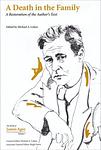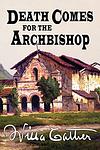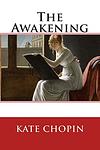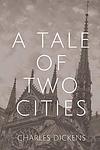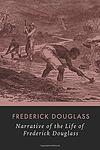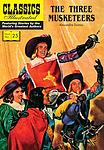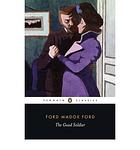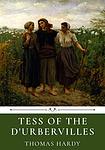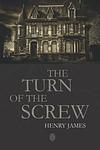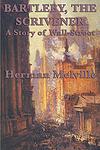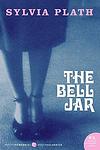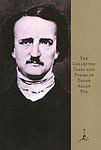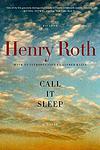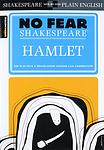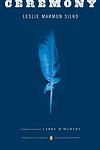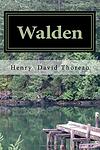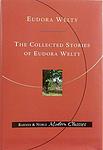The College Board: 101 Great Books Recommended for College-Bound Readers
This is one of the 284 lists we use to generate our main The Greatest Books list.
-
Beowulf by Unknown
"Beowulf" is an Old English epic poem that tells the story of the eponymous hero, a Geatish warrior who comes to the aid of Hrothgar, the king of the Danes, whose mead hall is under attack by a monster known as Grendel. Beowulf fights and defeats Grendel and his mother, earning the gratitude and friendship of Hrothgar. Later in his life, Beowulf becomes king of the Geats and faces his final battle with a deadly dragon. The poem explores themes of heroism, fate, and mortality, and is considered one of the most important works of Old English literature.
-
Things Fall Apart by Chinua Achebe
This novel explores the life of Okonkwo, a respected warrior in the Umuofia clan of the Igbo tribe in Nigeria during the late 1800s. Okonkwo's world is disrupted by the arrival of European missionaries and the subsequent clash of cultures. The story examines the effects of colonialism on African societies, the clash between tradition and change, and the struggle between individual and society. Despite his efforts to resist the changes, Okonkwo's life, like his society, falls apart.
-
A Death in the Family by James Agee
The novel centers around the tragic death of a young father in a car accident, exploring its profound impact on his family. The narrative delves into the grieving process of his wife, children, and extended family in Knoxville, Tennessee in 1915. The story explores themes of love, loss, and the struggle to find meaning in the face of tragic circumstances. It is a poignant examination of the human condition and the inevitable experience of loss.
-
Pride and Prejudice by Jane Austen
Set in early 19th-century England, this classic novel revolves around the lives of the Bennet family, particularly the five unmarried daughters. The narrative explores themes of manners, upbringing, morality, education, and marriage within the society of the landed gentry. It follows the romantic entanglements of Elizabeth Bennet, the second eldest daughter, who is intelligent, lively, and quick-witted, and her tumultuous relationship with the proud, wealthy, and seemingly aloof Mr. Darcy. Their story unfolds as they navigate societal expectations, personal misunderstandings, and their own pride and prejudice.
-
Go Tell it on the Mountain by James Baldwin
This novel explores the role of the Christian Church in the lives of African-Americans, both as a source of repression and moral hypocrisy and as a source of inspiration and community. It also, more broadly, examines the role of the Pentecostal Church in the African American experience. The narrative focuses on a fourteen-year-old boy's struggle to discover his identity amidst a family filled with secrets and a life marked by a religious community's strict moral code.
-
Waiting for Godot by Samuel Beckett
"Waiting for Godot" is a play that explores themes of existentialism, despair, and the human condition through the story of two characters, Vladimir and Estragon, who wait endlessly for a man named Godot, who never arrives. While they wait, they engage in a variety of discussions and encounter three other characters. The play is characterized by its minimalistic setting and lack of a traditional plot, leaving much to interpretation.
-
The Adventures of Augie March by Saul Bellow
"The Adventures of Augie March" is a novel set in Chicago during the Great Depression. The story follows the life of Augie March, a poor but spirited boy growing up in a broken home, as he navigates his way through life. The narrative explores his various jobs, relationships, and adventures, as he constantly seeks his identity and place in the world. His journey is marked by a series of encounters with different people and experiences, each shaping him in unique ways.
-
Jane Eyre by Charlotte Bronte
The novel follows the life of Jane Eyre, an orphan who is mistreated by her relatives and sent to a charity school. As she grows up, Jane becomes a governess at Thornfield Hall, where she falls in love with the brooding and mysterious Mr. Rochester. However, she soon learns of a dark secret in his past that threatens their future together. The story is a profound exploration of a woman's self-discovery and her struggle for independence and love in a rigid Victorian society.
-
Wuthering Heights by Emily Brontë
This classic novel is a tale of love, revenge and social class set in the Yorkshire moors. It revolves around the intense, complex relationship between Catherine Earnshaw and Heathcliff, an orphan adopted by Catherine's father. Despite their deep affection for each other, Catherine marries Edgar Linton, a wealthy neighbor, leading Heathcliff to seek revenge on the two families. The story unfolds over two generations, reflecting the consequences of their choices and the destructive power of obsessive love.
-
The Stranger by Albert Camus
The narrative follows a man who, after the death of his mother, falls into a routine of indifference and emotional detachment, leading him to commit an act of violence on a sun-drenched beach. His subsequent trial becomes less about the act itself and more about his inability to conform to societal norms and expectations, ultimately exploring themes of existentialism, absurdism, and the human condition.
-
Death Comes for the Archbishop by Willa Cather
This novel follows the life of a Catholic bishop and a vicar as they attempt to establish a diocese in New Mexico Territory. The story highlights their struggles and triumphs over the course of 40 years, dealing with the harsh landscape, cultural differences, and the challenges of faith. It also explores the history and culture of the Southwest, including the influence of Mexican and Native American traditions.
-
The Canterbury Tales by Geoffrey Chaucer
The Canterbury Tales is a collection of 24 stories that follows a group of pilgrims traveling from London to Canterbury to visit the shrine of Saint Thomas Becket. Told in Middle English, the tales are narrated by a diverse group of pilgrims, including a knight, a miller, a reeve, and a pardoner, who share their stories to pass the time during their journey. The tales, which range from chivalrous romances to bawdy fabliaux, provide a colorful, satirical, and critical portrayal of 14th century English society.
-
The Cherry Orchard by Anton Chekhov
"The Cherry Orchard" is a classic play about an aristocratic Russian woman and her family as they return to their family estate, which includes a large and well-known cherry orchard. The family is on the brink of financial ruin and the estate is slated to be auctioned off. Despite various attempts to save their beloved home and orchard, they are ultimately unable to prevent the sale. The play is a poignant reflection on the changing social order and the decline of the aristocracy in Russia at the turn of the 20th century.
-
The Awakening by Kate Chopin
"The Awakening" is a novel set in the late 19th century New Orleans, which explores the life of a young woman trapped in societal and marital expectations. She embarks on a journey of self-discovery and independence, defying the norms of her time. The protagonist challenges the traditional roles of women as she seeks personal fulfillment, experiences sexual awakening, and struggles with her desires and responsibilities. The book is a critique of the repressive social norms, particularly regarding women and marriage, of the Victorian era.
-
Heart of Darkness by Joseph Conrad
This classic novel follows the journey of a seaman who travels up the Congo River into the African interior to meet a mysterious ivory trader. Throughout his journey, he encounters the harsh realities of imperialism, the brutal treatment of native Africans, and the depths of human cruelty and madness. The protagonist's journey into the 'heart of darkness' serves as both a physical exploration of the African continent and a metaphorical exploration into the depths of human nature.
-
The Last of the Mohicans by James Fenimore Cooper
Set during the French and Indian War, this historical novel follows the journey of Hawkeye, a skilled frontiersman, and his two Mohican companions as they guide two daughters of a British colonel through the dangerous wilderness of the American frontier. The group faces numerous perils and conflicts, not only from the war-torn landscape and hostile tribes, but also from a treacherous Huron scout. The novel explores themes of racial conflict, survival, and the fading of indigenous cultures.
-
The Red Badge of Courage by Stephen Crane
"The Red Badge of Courage" is a novel set during the American Civil War, focusing on a young private in the Union Army who flees from the field of battle. Overcome with shame, he longs for a wound, a "red badge of courage," to counteract his cowardice. When his regiment once again faces the enemy, he acts as the standard-bearer, proving his courage. The book explores the themes of heroism, manhood, and the illusion versus reality of war.
-
The Divine Comedy by Dante Alighieri
In this epic poem, the protagonist embarks on an extraordinary journey through Hell (Inferno), Purgatory (Purgatorio), and Paradise (Paradiso). Guided by the ancient Roman poet Virgil and his beloved Beatrice, he encounters various historical and mythological figures in each realm, witnessing the eternal consequences of earthly sins and virtues. The journey serves as an allegory for the soul's progression towards God, offering profound insights into the nature of good and evil, free will, and divine justice.
-
Don Quixote by Miguel de Cervantes
This classic novel follows the adventures of a man who, driven mad by reading too many chivalric romances, decides to become a knight-errant and roam the world righting wrongs under the name Don Quixote. Accompanied by his loyal squire, Sancho Panza, he battles windmills he believes to be giants and champions the virtuous lady Dulcinea, who is in reality a simple peasant girl. The book is a richly layered critique of the popular literature of Cervantes' time and a profound exploration of reality and illusion, madness and sanity.
-
Robinson Crusoe by Daniel Defoe
The book is a classic adventure novel about a man who spends 28 years on a remote tropical island near Trinidad, encountering cannibals, captives, and mutineers before being rescued. The story is noted for its realistic portrayal of the protagonist's physical and psychological development and for its detailed depiction of his attempts to create a life for himself in the wilderness. The novel has been interpreted as an allegory for the development of civilization, as well as a critique of European colonialism.
-
A Tale of Two Cities by Charles Dickens
Set against the backdrop of the French Revolution, this classic novel explores themes of class struggle, sacrifice, and resurrection. The narrative follows the lives of several characters, including a dissipated English lawyer, a man who is a long-term prisoner in the Bastille, and a woman who becomes embroiled in the political turmoil of the time. The story is a riveting tale of love and sacrifice, with the infamous guillotine looming in the background, symbolizing the violence and unrest of the era.
-
Crime and Punishment by Fyodor Dostoevsky
A young, impoverished former student in Saint Petersburg, Russia, formulates a plan to kill an unscrupulous pawnbroker to redistribute her wealth among the needy. However, after carrying out the act, he is consumed by guilt and paranoia, leading to a psychological battle within himself. As he grapples with his actions, he also navigates complex relationships with a variety of characters, including a virtuous prostitute, his sister, and a relentless detective. The narrative explores themes of morality, redemption, and the psychological impacts of crime.
-
Narrative of the Life of Frederick Douglass by Frederick Douglass
This autobiographical book provides a first-hand account of the life of a former slave, chronicling his experiences from his early years in bondage, his struggle to teach himself to read and write, his daring escape to freedom, and his subsequent rise as a prominent abolitionist. The narrative is a powerful exploration of the physical and psychological effects of slavery, making it a significant work in American history.
-
An American Tragedy by Theodore Dreiser
This classic novel explores the dark side of the American Dream through the story of a young man who, despite his humble beginnings, aspires to climb the social ladder. He becomes involved with two women, one wealthy and one from a working-class background. His ambition and desire for status lead him to commit a crime that ultimately results in his downfall. The novel is a stark examination of the destructive power of unchecked ambition and the moral compromises people are willing to make in pursuit of wealth and status.
-
The Three Musketeers by Alexandre Dumas
Set in 17th century France, the novel follows the adventures of a young man who leaves home to join the Musketeers of the Guard. He befriends three of the most daring musketeers, Athos, Porthos, and Aramis, and together, they navigate political intrigue, love affairs, and duels. Their main enemies are the powerful Cardinal Richelieu and the beautiful but treacherous Milady, who will stop at nothing to bring them down.
-
The Mill on the Floss by George Eliot
"The Mill on the Floss" is a novel that explores the lives of siblings Tom and Maggie Tulliver, who grow up at Dorlcote Mill on the River Floss. The book delves into their experiences in the rural society of the time, their complex relationship, and the choices they make in adulthood. The story is marked by themes of love, betrayal, societal expectations, and the struggle between individual desires and family obligations. The tragic ending underscores the consequences of societal norms and the struggle against them.
-
Invisible Man by Ralph Ellison
The novel is a poignant exploration of a young African-American man's journey through life, where he grapples with issues of race, identity, and individuality in mid-20th-century America. The protagonist, who remains unnamed throughout the story, considers himself socially invisible due to his race. The narrative follows his experiences from the South to the North, from being a student to a worker, and his involvement in the Brotherhood, a political organization. The book is a profound critique of societal norms and racial prejudice, highlighting the protagonist's struggle to assert his identity in a world that refuses to see him.
-
The Essential Writings of Ralph Waldo Emerson by Ralph Waldo Emerson
This book is a comprehensive collection of works by a renowned American philosopher and poet. It includes his most influential essays, lectures, and poetry, providing readers with a deep insight into his thoughts on nature, self-reliance, love, friendship, freedom, and the importance of intellectual independence. The book serves as a guide to the author's transcendental philosophy and his belief in individualism, nonconformity, and the inherent goodness of man and nature.
-
As I Lay Dying by William Faulkner
The narrative unfolds through the eyes of 15 different characters over 59 chapters. It is the story of the death of Addie Bundren and her poor, rural family's quest and motivations—noble or selfish—to honor her wish to be buried in her hometown of Jefferson, Mississippi. As the Bundren family undertakes a journey to fulfill Addie's last wish, they face many hardships and personal revelations. The novel explores themes of existentialism, death, and the nature of family relationships.
-
The Sound and the Fury by William Faulkner
The novel is a complex exploration of the tragic Compson family from the American South. Told from four distinct perspectives, the story unfolds through stream of consciousness narratives, each revealing their own understanding of the family's decline. The characters grapple with post-Civil War societal changes, personal loss, and their own mental instability. The narrative is marked by themes of time, innocence, and the burdens of the past.
-
Tom Jones by Henry Fielding
This classic novel tells the story of Tom Jones, a charming and good-hearted but impulsive young man, who is expelled from his adoptive family home due to his wild behavior and love for the beautiful Sophia Western. His journey through 18th-century England is filled with adventures, misadventures, and a colorful cast of characters, as he struggles with his identity and seeks redemption. The narrative explores themes of class, virtue, and morality, and is known for its humor, social satire, and vivid characterization.
-
The Great Gatsby by F. Scott Fitzgerald
Set in the summer of 1922, the novel follows the life of a young and mysterious millionaire, his extravagant lifestyle in Long Island, and his obsessive love for a beautiful former debutante. As the story unfolds, the millionaire's dark secrets and the corrupt reality of the American dream during the Jazz Age are revealed. The narrative is a critique of the hedonistic excess and moral decay of the era, ultimately leading to tragic consequences.
-
Madame Bovary by Gustave Flaubert
Madame Bovary is a tragic novel about a young woman, Emma Bovary, who is married to a dull, but kind-hearted doctor. Dissatisfied with her life, she embarks on a series of extramarital affairs and indulges in a luxurious lifestyle in an attempt to escape the banalities and emptiness of provincial life. Her desire for passion and excitement leads her down a path of financial ruin and despair, ultimately resulting in a tragic end.
-
The Good Soldier by Ford Madox Ford
"The Good Soldier" is a tragic tale of two seemingly perfect couples: an American couple and an English couple, who meet at a German spa and share a nine-year friendship. However, underneath the surface, their relationships are far from ideal, filled with infidelity, lies, and deceit. The story is narrated by the American husband, who is the last to realize the intricate web of affairs and betrayals amongst the group. The novel explores themes of love, passion, and the destruction that can result from suppressed emotions and societal pressures.
-
Faust by Johann Wolfgang von Goethe
The book is a tragic play in two parts that tells the story of a scholarly man named Faust, who becomes dissatisfied with his life and makes a pact with the devil, Mephistopheles. In exchange for unlimited knowledge and worldly pleasures, Faust agrees to give his soul to Mephistopheles after death. The narrative explores themes of ambition, despair, love, and redemption, ultimately leading to Faust's salvation.
-
Lord of the Flies by William Golding
A group of British boys are stranded on an uninhabited island after their plane crashes during wartime. Initially, they attempt to establish order, creating rules and electing a leader. However, as time passes, their civility erodes, and they descend into savagery and chaos. The struggle for power intensifies, leading to violence and death. The novel explores themes of innocence, the inherent evil in mankind, and the thin veneer of civilization.
-
Tess of the d'Urbervilles by Thomas Hardy
This is a tragic tale of a young woman named Tess who comes from a poor family in rural England. Tess is sent to work for a wealthy family, where she is seduced by a man who abandons her after she becomes pregnant. The baby dies, and Tess is ostracized by her community. She falls in love with a kind man, but when she confesses her past, he rejects her. Desperate and heartbroken, Tess murders her former seducer and is eventually captured and executed. The novel explores themes of fate, injustice, and the oppressive sexual morals of its time.
-
The Scarlet Letter by Nathaniel Hawthorne
Set in 17th-century Puritan Boston, this novel tells the story of a woman who conceives a daughter through an affair and struggles to create a new life of repentance and dignity. She is forced to wear a scarlet "A" on her dress as a sign of her adultery while her lover, a revered local minister, remains unnamed and unpunished. Throughout the book, themes of sin, legalism, and guilt are explored.
-
Catch-22 by Joseph Heller
The book is a satirical critique of military bureaucracy and the illogical nature of war, set during World War II. The story follows a U.S. Army Air Forces B-25 bombardier stationed in Italy, who is trying to maintain his sanity while fulfilling his service requirements so that he can go home. The novel explores the absurdity of war and military life through the experiences of the protagonist, who discovers that a bureaucratic rule, the "Catch-22", makes it impossible for him to escape his dangerous situation. The more he tries to avoid his military assignments, the deeper he gets sucked into the irrational world of military rule.
-
A Farewell to Arms by Ernest Hemingway
Set during World War I, the novel follows an American ambulance driver in the Italian army and his love affair with a British nurse. The story is a first-person account of the protagonist's experiences in war and his struggle to survive amidst chaos and destruction. The narrative explores themes of love, war, and the fragility of life, culminating in a tragic ending that underscores the futile nature of war and the inevitable suffering it brings.
-
The Iliad by Homer
This epic poem focuses on the final weeks of the Trojan War, a conflict between the city of Troy and the Greek city-states. The story explores themes of war, honor, wrath, and divine intervention, with a particular focus on the Greek hero Achilles, whose anger and refusal to fight have devastating consequences. The narrative also delves into the lives of the gods, their relationships with humans, and their influence on the course of events.
-
The Odyssey by Homer
This epic poem follows the Greek hero Odysseus on his journey home after the fall of Troy. It takes Odysseus ten years to reach Ithaca after the ten-year Trojan War. Along the way, he encounters many obstacles including mythical creatures, divine beings, and natural disasters. Meanwhile, back in Ithaca, his wife Penelope and son Telemachus fend off suitors vying for Penelope's hand in marriage, believing Odysseus to be dead. The story concludes with Odysseus's return, his slaughter of the suitors, and his reunion with his family.
-
The Hunchback of Notre-Dame by Victor Hugo
Set in 15th-century Paris, this novel follows the story of Quasimodo, a deformed and hunchbacked bell-ringer of Notre-Dame Cathedral, who is shunned due to his appearance. Despite his physical deformities, Quasimodo falls in love with the beautiful gypsy girl, Esmeralda. However, his love is unrequited as she is in love with a handsome soldier. The novel explores themes of love, rejection, and the human struggle against fate and societal norms.
-
Their Eyes Were Watching God by Zora Neale Hurston
This novel follows the life of Janie Crawford, a young African-American woman, in the early 20th century. She embarks on a journey through three marriages and self-discovery while challenging the societal norms of her time. The narrative explores her struggle for personal freedom, fulfillment, and identity against the backdrop of racism and gender expectations, ultimately emphasizing the importance of independence and personal growth.
-
Brave New World by Aldous Huxley
Set in a dystopian future, the novel explores a society where human beings are genetically bred and pharmaceutically conditioned to serve in a ruling order. The society is divided into five castes, each with its specific roles. The narrative follows a savage who rejects the norms of this new world order and struggles to navigate the clash between the values of his upbringing and the reality of this technologically advanced, emotionless society. His resistance prompts a deep examination of the nature of freedom, individuality, and happiness.
-
A Doll's House by Henrik Ibsen
This classic play focuses on the life of Nora Helmer, a woman living in a seemingly perfect marriage with her husband, Torvald. However, as the story unfolds, it becomes clear that Nora has been hiding a significant secret related to their finances. The revelation of this secret, and the subsequent fallout, challenges societal norms and expectations of the time, particularly in regards to gender roles and the institution of marriage. Nora's eventual decision to leave her husband and children in pursuit of her own independence serves as a powerful commentary on individual freedom and self-discovery.
-
The Portrait of a Lady by Henry James
This classic novel explores the life of a young, independent American woman who inherits a large amount of money and moves to Europe, where she falls into a manipulative and oppressive marriage. The story delves into themes of personal freedom, responsibility, and betrayal, as the protagonist navigates the complexities of high society, love, and the consequences of her choices.
-
The Turn of the Screw by Henry James
A young governess is hired to care for two children at a remote English estate. However, she soon becomes convinced that the grounds are haunted by two former employees who have taken control of the children. As she fights to free the children from these apparitions, the line between reality and her own fears becomes increasingly blurred, leading to a chilling and ambiguous conclusion.
-
A Portrait of the Artist as a Young Man by James Joyce
This novel is a semi-autobiographical account of a young man's intellectual and artistic development in late 19th-century Ireland. The protagonist struggles with issues of identity, faith, and nationality, ultimately rejecting the traditional values of his Catholic upbringing to pursue his own path as an artist. The book is renowned for its innovative narrative style and its exploration of themes such as individuality, freedom, and the nature of art.
-
The Metamorphosis by Franz Kafka
The book tells the story of a man who wakes up one morning to find himself transformed into a giant insect. His transformation causes him to lose his job and become ostracized from his family, who are horrified and repulsed by his new form. As he grapples with his new reality, he becomes increasingly isolated and starts to lose his sense of humanity. The book explores themes of alienation, guilt, and identity, and is a profound examination of the human condition.
-
The Woman Warrior: Memoirs of a Girlhood Among Ghosts by Maxine Hong Kingston
This memoir explores the life of a first-generation Chinese-American woman, navigating the complexities of her dual heritage. Through five interconnected stories, the book delves into the author's childhood experiences, her mother's tales of old China, and the struggles of reconciling these two worlds. The memoir is a blend of reality and mythology, illustrating the author's struggle with her identity, the expectations of her traditional Chinese family, and the challenges of growing up in a predominantly white American society.
-
To Kill a Mockingbird by Harper Lee
Set in the racially charged South during the Depression, the novel follows a young girl and her older brother as they navigate their small town's societal norms and prejudices. Their father, a lawyer, is appointed to defend a black man falsely accused of raping a white woman, forcing the children to confront the harsh realities of racism and injustice. The story explores themes of morality, innocence, and the loss of innocence through the eyes of the young protagonists.
-
Babbitt by Sinclair Lewis
"Babbitt" is a satirical novel that explores the life of a prosperous, middle-aged businessman living in a Midwestern city during the 1920s. Despite his apparent success and conformity to societal norms, the protagonist feels a deep dissatisfaction with his life and the monotony of his daily routines. This leads him to rebel against the conservative values of his community, resulting in personal and social upheaval. The book critically examines the American middle class and the pressures of conformism, materialism, and status anxiety.
-
The Call of the Wild by Jack London
This book tells the story of a domesticated dog named Buck who is stolen from his home in California and sold into service as a sled dog in Alaska. As he faces harsh conditions and brutal treatment, Buck must learn to adapt to the wild and harsh environment, ultimately reverting to his ancestral instincts in order to survive. The book explores themes of nature versus nurture, civilization versus wilderness, and the struggle for dominance.
-
The Magic Mountain by Thomas Mann
In this novel, the protagonist, a young, ordinary man, visits his cousin at a tuberculosis sanatorium in the Swiss Alps. Intending to stay for only a few weeks, he ends up remaining there for seven years, becoming a patient himself. The book explores his experiences and relationships with other patients and staff, delving into philosophical discussions on life, time, and the nature of disease. It also provides a vivid portrayal of the European society and intellectual life on the eve of World War I.
-
One Hundred Years of Solitude by Gabriel Garcia Marquez
This novel is a multi-generational saga that focuses on the Buendía family, who founded the fictional town of Macondo. It explores themes of love, loss, family, and the cyclical nature of history. The story is filled with magical realism, blending the supernatural with the ordinary, as it chronicles the family's experiences, including civil war, marriages, births, and deaths. The book is renowned for its narrative style and its exploration of solitude, fate, and the inevitability of repetition in history.
-
Bartleby the Scrivener by Herman Melville
"Bartleby the Scrivener" is a story set in Wall Street, revolving around a law firm clerk named Bartleby who, after initially proving himself a diligent employee, begins to refuse his boss's orders with the phrase "I would prefer not to." Despite being fired and even imprisoned, Bartleby continues his passive resistance until his eventual death. The narrative explores themes of isolation, the mechanization of the workplace, and the inexplicable nature of human behavior.
-
Moby Dick by Herman Melville
The novel is a detailed narrative of a vengeful sea captain's obsessive quest to hunt down a giant white sperm whale that bit off his leg. The captain's relentless pursuit, despite the warnings and concerns of his crew, leads them on a dangerous journey across the seas. The story is a complex exploration of good and evil, obsession, and the nature of reality, filled with rich descriptions of whaling and the sea.
-
The Crucible by Arthur Miller
Set during the Salem Witch Trials in the late 17th century, this play explores the hysteria, deceit, and religious extremism that plague a small Puritan village in Massachusetts. The protagonist, a flawed but essentially good man, is caught in a web of accusations when young girls in the town start displaying strange behavior and accusing others of witchcraft. The ensuing trials reveal not only the dangers of mass hysteria and false accusations, but also the destructive power of societal pressures and the human capacity for both cruelty and heroism.
-
Beloved by Toni Morrison
This novel tells the story of a former African-American slave woman who, after escaping to Ohio, is haunted by the ghost of her deceased daughter. The protagonist is forced to confront her repressed memories and the horrific realities of her past, including the desperate act she committed to protect her children from a life of slavery. The narrative is a poignant exploration of the physical, emotional, and psychological scars inflicted by the institution of slavery, and the struggle for identity and self-acceptance in its aftermath.
-
A Good Man Is Hard to Find by Flannery O'Connor
This collection of short stories is set in the American South and explores themes of morality, ethics, and the complexity of human nature. The stories feature a variety of characters, each grappling with their own moral dilemmas and personal struggles. The title story centers around a family's disastrous road trip, during which they encounter a notorious escaped convict. Through these narratives, the book examines the concept of "goodness" and the capacity for redemption and grace in a flawed world.
-
Long Day's Journey Into Night by Eugene O'Neill
"Long Day's Journey Into Night" is a semi-autobiographical play that explores the complex dynamics of a family tormented by addiction and regret. The narrative follows the Tyrone family, composed of two parents and their two adult sons, over the course of a single day. As the day progresses, the family members engage in soul-baring conversations that reveal their individual struggles with alcohol and drug addiction, their deep-seated resentments, and the love that binds them together despite their flaws. The play is a poignant examination of the human condition, familial bonds, and the destructive power of addiction.
-
Animal Farm by George Orwell
"Animal Farm" is a satirical fable set on a farm where the animals revolt, overthrow their human farmer, and take over the running of the farm for themselves. The story is an allegory of the Russian Revolution and the rise of Stalin, and the tale is told by the animals that inhabit the farm, primarily pigs who become the ruling class. Despite their initial attempts at creating an equal society, corruption and power ultimately lead to a regime as oppressive as the one they overthrew.
-
Doctor Zhivago by Boris Pasternak
Set against the tumultuous backdrop of the Russian Revolution, the book follows the life of a physician and poet, Yuri Zhivago, as he navigates the political and social upheaval of the early 20th century. Torn between his love for two women, his wife Tonya and his passionate mistress Lara, Zhivago's personal struggles mirror the larger societal changes occurring around him. The novel explores themes of love, war, and the human spirit, offering a poignant and complex portrait of life during a time of revolutionary change.
-
The Bell Jar by Sylvia Plath
The novel follows the story of a young woman who wins a guest editorship at a magazine in New York City and, after a series of personal and professional disappointments, suffers a mental breakdown and returns to her family, where she continues to struggle with depression and suicidal thoughts. The protagonist's experiences in psychiatric institutions and her attempts to reclaim her life are depicted with brutal honesty, making it a poignant exploration of mental illness and the societal pressures faced by women in the mid-20th century.
-
The Complete Tales and Poems of Edgar Allan Poe by Edgar Allan Poe
This collection brings together all of the author's most famous works, including poems, short stories, and novellas. Known for his macabre and gothic storytelling, the author's works are filled with themes of death, love lost, and human frailty. Notable inclusions are the haunting poem "The Raven," the chilling stories "The Tell-Tale Heart" and "The Fall of the House of Usher," and his only complete novel, "The Narrative of Arthur Gordon Pym."
-
In Search of Lost Time by Marcel Proust
This renowned novel is a sweeping exploration of memory, love, art, and the passage of time, told through the narrator's recollections of his childhood and experiences into adulthood in the late 19th and early 20th century aristocratic France. The narrative is notable for its lengthy and intricate involuntary memory episodes, the most famous being the "madeleine episode". It explores the themes of time, space and memory, but also raises questions about the nature of art and literature, and the complex relationships between love, sexuality, and possession.
-
The Crying of Lot 49 by Thomas Pynchon
The novel follows the journey of a woman who stumbles upon a centuries-old conflict between two mail distribution companies when she is appointed the executor of her ex-lover's will. As she delves deeper into the mystery, she begins to question her own sanity and the reality of the conspiracy itself. The story explores themes of communication, interpretation, and the struggle to find meaning in a chaotic world.
-
All Quiet on the Western Front by Erich Maria Remarque
The novel tells the story of a young German soldier, Paul Bäumer, and his experiences during World War I. The narrative explores the physical and emotional toll of war, the camaraderie between soldiers, and the disillusionment of a generation thrown into a brutal conflict. The protagonist and his friends grapple with survival, fear, and the loss of innocence, providing a stark and poignant critique of the futility and destructiveness of war.
-
Cyrano de Bergerac by Edmond Rostand
"Cyrano de Bergerac" is a classic French play that tells the story of a nobleman named Cyrano, who is a talented poet and swordsman but has a very large nose. Despite being deeply in love with his cousin Roxane, Cyrano doesn't believe she could ever love him because of his appearance, so he helps his friend Christian woo her instead. Cyrano writes love letters to Roxane on behalf of Christian, and Roxane falls in love with the man she believes Christian to be. The story is a tragic tale of unrequited love, selflessness, and the power of inner beauty.
-
Call It Sleep by Henry Roth
This novel tells the story of a young Jewish boy, David Schearl, who immigrates to New York City with his mother in the early 20th century. The narrative explores David's struggles to understand his harsh father, his experiences with anti-Semitism and poverty in the Lower East Side, and his journey of self-discovery through his vivid imagination. The boy's fears and dreams are depicted through a stream-of-consciousness narrative technique, providing a powerful exploration of the immigrant experience and the harsh realities of the American dream.
-
The Catcher in the Rye by J. D. Salinger
The novel follows the story of a teenager named Holden Caulfield, who has just been expelled from his prep school. The narrative unfolds over the course of three days, during which Holden experiences various forms of alienation and his mental state continues to unravel. He criticizes the adult world as "phony" and struggles with his own transition into adulthood. The book is a profound exploration of teenage rebellion, alienation, and the loss of innocence.
-
Hamlet by William Shakespeare
This classic play revolves around the young Prince of Denmark who is thrown into a state of emotional turmoil after his father's sudden death and his mother's quick remarriage to his uncle. The prince is visited by the ghost of his father who reveals that he was murdered by the uncle, prompting the prince to seek revenge. The narrative explores themes of madness, revenge, and moral corruption as the prince navigates the complex political and emotional landscape of the Danish court.
-
Macbeth by William Shakespeare
This classic play follows the tragic tale of Macbeth, a Scottish general whose ambition is sparked by a prophecy from three witches that he will one day become King of Scotland. Consumed by ambition and spurred on by his wife, Macbeth murders King Duncan and takes the throne. However, guilt and paranoia plague him, leading to a reign of terror and further bloodshed. His desperate attempts to cling onto power lead to his downfall, illustrating the destructive power of unchecked ambition.
-
A Midsummer Night's Dream by William Shakespeare
In this classic play, the Duke of Athens is preparing for his marriage when the lives of two young couples become complicated by the meddling of fairies. The fairy king and queen, Oberon and Titania, are quarreling, causing chaos in both the fairy world and the world of mortals. Puck, a mischievous sprite and servant of Oberon, causes further confusion and comic misadventures by casting spells that lead to mistaken identities and misplaced affections. Eventually, all is resolved, and the play ends with three happily married couples.
-
Romeo and Juliet by William Shakespeare
This classic play tells the tragic love story of two young individuals from feuding families in Verona, Italy. Despite their families' ongoing conflict, the pair secretly marry and vow to be together, no matter the cost. Their commitment leads to a series of unfortunate events, including misunderstandings, banishments, and ultimately, their untimely deaths. Their demise, however, reconciles their feuding families, leaving a poignant message about the destructive power of hate and the redemptive power of love.
-
Pygmalion by George Bernard Shaw
"Pygmalion" is a play that explores the transformative power of education and the nature of language and communication. It follows the story of a cockney flower girl named Eliza Doolittle who is taught to speak and behave like a duchess by a pompous phonetics professor, Henry Higgins. Throughout the process, Eliza develops self-respect and personal dignity, challenging the Victorian society's rigid class system. The play also questions the idea of 'making' someone and the moral responsibility that comes with it.
-
Frankenstein by Mary Shelley
This classic novel tells the story of a young scientist who creates a grotesque but sentient creature in an unorthodox scientific experiment. The scientist, horrified by his creation, abandons it, leading the creature to seek revenge. The novel explores themes of ambition, responsibility, guilt, and the potential consequences of playing God.
-
Ceremony by Leslie Marmon Silko
"Ceremony" is a novel that explores the life of Tayo, a World War II veteran of mixed Laguna Pueblo and white heritage. After returning from the war, Tayo struggles with post-traumatic stress disorder and alcoholism. The novel charts his journey towards healing, which involves embracing his Native American heritage and the traditional ceremonies of his people. Along the way, he must confront racism, poverty, and the destructive forces of Western culture, ultimately finding solace and redemption in the ancient rituals and wisdom of his ancestors.
-
One Day in the Life of Ivan Denisovich by Aleksandr Solzhenitsyn
This novel provides a detailed account of a single day in the life of a prisoner, Ivan Denisovich, in a Soviet labor camp in the 1950s. The narrative follows Ivan as he navigates the harsh realities of his daily routine, from the moment he wakes up to when he goes to bed. The book provides a stark portrayal of the brutality and inhumanity of the Soviet gulag system while also highlighting the resilience and dignity of the human spirit under such oppressive conditions.
-
Antigone by Sophocles
This ancient Greek tragedy follows the story of Antigone, a young woman who defies the king's edict in order to bury her brother according to their religious customs. The king, her uncle, sentences her to death for her disobedience, leading to a series of tragic events including his own son's suicide. The play explores themes of loyalty, honor, obedience, and the conflict between the laws of the state and the laws of the gods.
-
Oedipus the King by Sophocles
"Oedipus the King" is a tragic play that revolves around the life of Oedipus, the king of Thebes, who is prophesied to kill his father and marry his mother. Despite his attempts to avoid this fate, Oedipus unknowingly fulfills the prophecy. When he discovers the truth about his actions, he blinds himself in despair. The play explores themes of fate, free will, and the quest for truth, highlighting the tragic consequences of human hubris and ignorance.
-
Oedipus at Colonus by Sophocles
"Oedipus at Colonus" is a tragic play that follows the final days of Oedipus, the former king of Thebes. Oedipus, now blind and exiled, arrives at the town of Colonus where he is initially rejected due to the curse that follows him. However, after revealing a prophecy that his burial place will bring prosperity to the city that hosts it, he is allowed to stay. The play explores themes of fate, guilt, and redemption, ending with Oedipus's peaceful death and ascension to a semi-divine status.
-
The Grapes of Wrath by John Steinbeck
The book follows the Joad family, Oklahoma farmers displaced from their land during the Great Depression. The family, alongside thousands of other "Okies," travel to California in search of work and a better life. Throughout their journey, they face numerous hardships and injustices, yet maintain their humanity through unity and shared sacrifice. The narrative explores themes of man's inhumanity to man, the dignity of wrath, and the power of family and friendship, offering a stark and moving portrayal of the harsh realities of American migrant laborers during the 1930s.
-
Treasure Island by Robert Louis Stevenson
This classic adventure novel tells the story of young Jim Hawkins, who stumbles upon a treasure map and embarks on a perilous journey to find the buried treasure. Along the way, he encounters a host of memorable characters, including the cunning and treacherous Long John Silver. The narrative is filled with action, intrigue, and suspense, as Hawkins and his companions face pirates, mutiny, and other dangers in their quest for the hidden treasure.
-
Uncle Tom's Cabin by Harriet Beecher Stowe
This renowned novel provides a harsh critique of American slavery through the story of Uncle Tom, a long-suffering black slave. The narrative follows Tom as he is sold and transported to the harsh South, encountering a variety of characters, both kind and cruel. The novel powerfully explores themes of faith, the immorality of slavery, and the concept of humanity, ultimately contributing to the abolitionist cause and leaving a significant impact on the American perception of slavery.
-
Gulliver's Travels by Jonathan Swift
This classic satire follows the travels of a surgeon and sea captain who embarks on a series of extraordinary voyages. The protagonist first finds himself shipwrecked on an island inhabited by tiny people, later discovers a land of giants, then encounters a society of intelligent horses, and finally lands on a floating island of scientists. Through these bizarre adventures, the novel explores themes of human nature, morality, and society, offering a scathing critique of European culture and the human condition.
-
Vanity Fair by William Makepeace Thackeray
This classic novel follows the lives of two contrasting women, the cunning and ruthless Becky Sharp and the sweet and naive Amelia Sedley, against the backdrop of English society during the Napoleonic Wars. The book is a satirical exploration of the obsession with wealth, status, and social climbing, and the moral bankruptcy that can result from such pursuits. The narrative weaves an intricate tale of love, betrayal, and redemption, exposing the vanity and hypocrisy of high society.
-
Walden by Henry David Thoreau
This work is a reflection upon simple living in natural surroundings, inspired by the author's two-year experience of living in a cabin near a woodland pond. Filled with philosophical insights, observations on nature, and declarations of independence from societal expectations, the book is a critique of the complexities of modern civilization and a call to appreciate the beauty and simplicity of the natural world. It explores themes such as self-reliance, solitude, and the individual's relationship with nature.
-
War and Peace by Leo Tolstoy
Set in the backdrop of the Napoleonic era, the novel presents a panorama of Russian society and its descent into the chaos of war. It follows the interconnected lives of five aristocratic families, their struggles, romances, and personal journeys through the tumultuous period of history. The narrative explores themes of love, war, and the meaning of life, as it weaves together historical events with the personal stories of its characters.
-
Fathers and Sons by Ivan Turgenev
This classic novel explores the generational divide and ideological clash in 19th century Russia. The story focuses on the relationship between a liberal father and his nihilistic son, who challenges the traditional values and beliefs of his elders. As they navigate their personal differences, the novel delves into broader themes of progress, love, and societal change, offering a poignant commentary on the tension between old and new ideas in a rapidly changing world.
-
The Adventures of Huckleberry Finn by Mark Twain
The novel follows the journey of a young boy named Huckleberry Finn and a runaway slave named Jim as they travel down the Mississippi River on a raft. Set in the American South before the Civil War, the story explores themes of friendship, freedom, and the hypocrisy of society. Through various adventures and encounters with a host of colorful characters, Huck grapples with his personal values, often clashing with the societal norms of the time.
-
Candide by Voltaire
"Candide" is a satirical novel that follows the adventures of a young man, Candide, who is living a sheltered life in an Edenic paradise and being indoctrinated with Leibnizian optimism by his mentor. When he is expelled from the paradise for kissing a baron's daughter, he embarks on a journey around the world, witnessing the horrors of war, natural disasters, and human cruelty. Throughout his journey, Candide maintains his optimistic philosophy, despite the constant hardships he faces, ultimately concluding that one must cultivate their own garden, a metaphor for taking control of one's own destiny.
-
Slaughterhouse-Five by Kurt Vonnegut
The novel follows the life of Billy Pilgrim, a World War II veteran who has become "unstuck in time," experiencing his life events out of order. This includes his experiences as a prisoner of war in Dresden during the Allies' firebombing, his post-war life as a successful optometrist, his abduction by aliens from the planet Tralfamadore, and his eventual death. The book is a critique of war and a demonstration of the destructive nature of time, with a nonlinear narrative that reflects the chaos and unpredictability of life.
-
The Color Purple by Alice Walker
Set in the early 20th century, the novel is an epistolary tale of a young African-American woman named Celie, living in the South. She faces constant abuse and hardship, first from her father and then from her husband. The story unfolds through her letters written to God and her sister Nettie, revealing her emotional journey from oppression to self-discovery and independence, aided by her relationships with strong women around her. The narrative explores themes of racism, sexism, domestic violence, and the power of sisterhood and love.
-
The House of Mirth by Edith Wharton
Set in the backdrop of New York's high society during the turn of the 20th century, the novel follows the life of Lily Bart, a beautiful but impoverished woman of social standing. As she navigates the pressures and expectations of her social circle, Lily grapples with the need to secure a wealthy husband to maintain her lifestyle. However, her romantic inclinations and her desire for personal freedom come into conflict with societal norms, leading to her tragic downfall.
-
The Collected Stories of Eudora Welty by Eudora Welty
This collection of short stories provides an insightful look into the human condition through the lens of Southern American life. The narratives, rich in detail and character development, explore a wide range of themes such as love, loss, race, poverty, and the complexities of human relationships. The stories are deeply rooted in the setting of the Southern United States, bringing to life the unique culture, customs, and dialect of the region. The author's masterful storytelling and evocative prose make each story a vivid and memorable exploration of human nature.
-
Leaves of Grass by Walt Whitman
"Leaves of Grass" is a collection of poetry that celebrates the human form and condition, while also exploring themes of democracy, nature, love, and friendship. The book, known for its departure from traditional poetic form, features a free verse style and the use of everyday language. The poet presents himself as both an individual and a universal figure, representing the collective American experience and identity. The collection is also notable for its controversial content at the time of its publication, including candid depictions of sexuality.
-
The Picture of Dorian Gray by Oscar Wilde
The novel follows the life of a handsome young man who, after having his portrait painted, is upset to realize that the painting will remain beautiful while he ages. After expressing a wish that the painting would age instead of him, he is shocked to find that his wish comes true. As he indulges in a life of hedonism and immoral acts, his portrait becomes increasingly grotesque, reflecting the damage his actions have on his soul. The story serves as a cautionary tale about the dangers of vanity, selfishness, and the pursuit of pleasure without regard for consequences.
-
The Glass Menagerie by Tennessee Williams
A memory play set in St. Louis during the Great Depression, it follows the story of the Wingfield family. The protagonist, Tom, struggles with his role as the breadwinner for his overbearing mother, Amanda, and his physically and emotionally fragile sister, Laura, who spends her time with her collection of glass animals. The family's life takes a turn when Tom invites a gentleman caller home for dinner to meet Laura, causing tensions to rise and secrets to unfold.
The College Board, an American not-for-profit organization, 121 Books
The 101 great books recommended by "The College Board", an American not-for-profit organization that was formed in December 1899 as the College Entrance Examination Board (CEEB) to expand access to higher education.
Added about 7 years ago.
This list has a weight of 38%. To learn more about what this means please visit the Rankings page.
Here is a list of what is decreasing the importance of this list:
- Voters: no voter information
- Voters: are mostly from a single country/location
- List: only covers mostly "Western Canon" books
If you think this is incorrect please e-mail us at [email protected].


